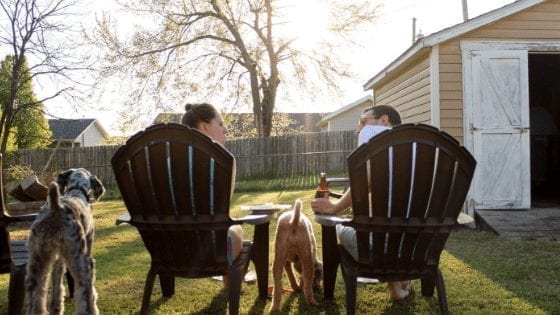Deciding how best to honour your pet after their passing is a difficult choice made by families around the world.
There are a number of different ways in which pet owners can say goodbye to their special friends, however, what many people don’t realise is that one of the popular choices is posing a serious health risk to other pets, humans and wild animals.
Backyard Burials
Before the days of pet cremation and other respectful farewell customs, it was most common for deceased pets to be buried in the backyard following a small ‘funeral’ service involving family and friends of the beloved animal.
It may seem like the easiest and cheapest option, but the reality is that depending on how your pet passed away, having their remains in the soil of your backyard can be of serious detriment to any living animals, loved ones or greenery that may be in the area.
These days, most pets who are ready to pass on are put to sleep using a very concentrated anaesthetic agent resulting in a peaceful death, most commonly known as euthanasia.
What many people don’t realise is that this drug, pentobarbital, actually remains in the body of a pet for up to a year. This means that any animal scavenging in the area, wild or domestic, could potentially come across your deceased pet and be fatally poisoned by the euthanasia solution. If not a fatal poisoning, the solution can at the very least make your pet rather ill for quite some time.
Further to this, if your pet passed away of a disease that poses a threat to other living beings, their body will serve as a threat as well. Many diseases are known to still be dangerous in the remains of a deceased animal for quite some time after passing. While vaccinations can often solve this problem, some animal diseases are still transferrable even after death.
For others, the opportunity to have your pet peacefully put to sleep is not an option, and they might pass away without warning. Regardless of whether your pet passed away by disease or euthanasia, it is important to consider the ramifications of future pets or wild animals scavenging upon their remains. If you feel as though this doesn’t affect you, then consider instead the family that might move into your house after you leave. They may have pets which could dig up your furry friend in years to come, which would be a truly unpleasant experience for all involved.
Alternative Options
The most common modern-day practise is pet cremation, which ensures that your pet’s remains are carefully cremated so that any harmful materials cease to exist. You will receive your pet in a beautiful urn or other memorial product that can be placed somewhere visible within your home to serve as a reminder of the wonderful memories you once shared.
Alternatively, you can spread the ashes in a place of your choosing, which does not cause any harm to scavenge animals now or in the future. Irrespective of the method you choose, we highly recommend taking the time to consider the ramifications on other animals and humans should you choose a backyard burial. Pet cremation is a much more effective way to say goodbye to your pet. It ensures no further harm can be done to your family or any other innocent creatures.
If you would like more information about our services, please feel free to contact us.


